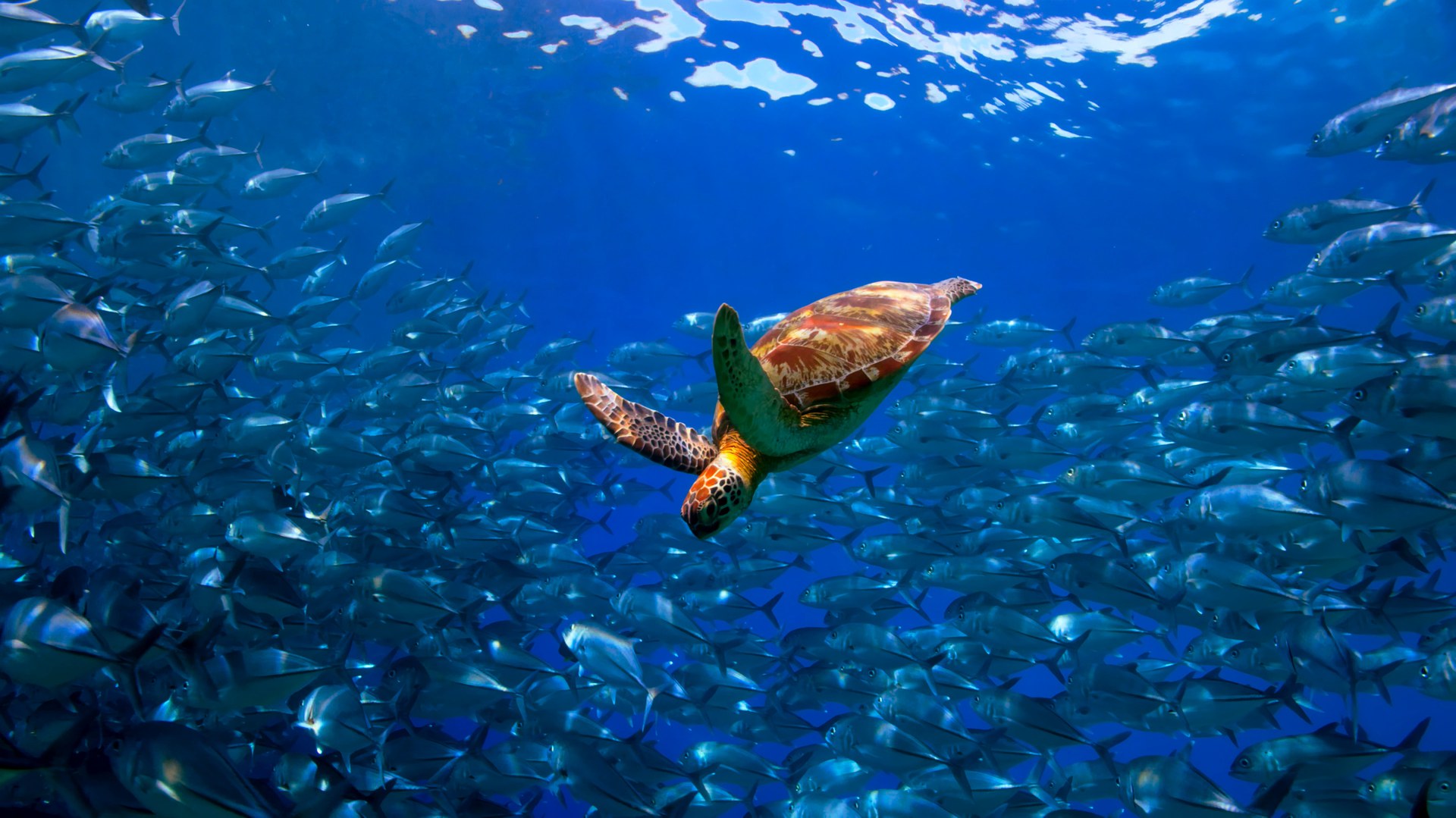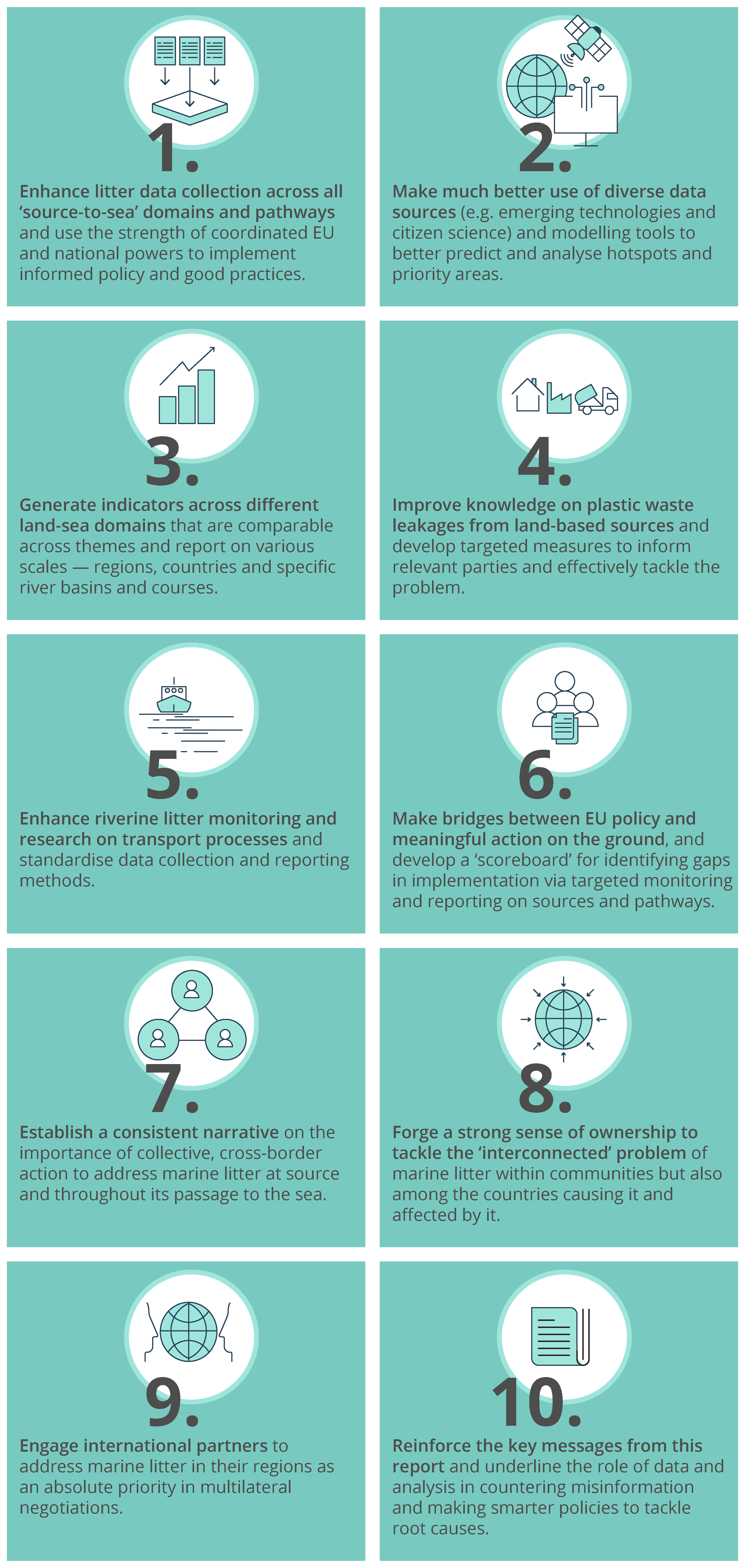What do we need to know to act?
There is clear evidence that an ‘absolute decoupling’ of waste from economic growth has not been achieved. However, there are positive signs that waste generation seems to be increasing at a slower pace than gross domestic product (GDP). The problem is that demand for plastic is still growing. This translates into increased plastic waste generation per person, particularly packaging, which is easily converted into waste.
Efforts in Europe to improve collection and waste management have made some headway in reducing mismanaged plastic packaging and small non-packaging plastic items (PPSI) waste as a share of the total. But only a few countries have succeeded in lowering absolute amounts of PPSI waste. To find solutions, EU legislation is moving towards a more integrated approach based on monitoring. However, more emphasis on building robust policy feedback loops is needed.
The EEA has clearly identified that litter needs to be tackled and prevented at source. For that, we need a more complete picture of the real issues — the origins, pathways, amounts and effects of marine litter — and a better understanding of what is ultimately at stake: a healthier environment for people and the planet.
Old-fashioned clean-ups and physical monitoring by volunteer citizen scientists are invaluable. Technology also plays an increasingly important role, including Earth observation — remote sensing using satellites, planes, drones and artificial intelligence to help make sense of the ‘big data’ collected.
Waste leakage and riverine litter estimation models, and the EEA’s novel Marine Litter Assessment Tool (MALT), are just as important as fine-grained data collection and monitoring activities. These tools are needed to drive political decision-making in countries and communities facing the biggest waste mismanagement problems, leading to the highest ‘litter loads’.

Truly reducing marine litter requires concrete data and a deeper understanding of the human needs that drive plastic production and mismanaged waste, and of the major pathways that carry litter from source to sea
© Oleksandr Sushko on Unsplash
To that end, comprehensive data on rivers and the tributaries that feed them are crucial for understanding the relationship between the sources and pathways of litter flows. Yet the methods currently used to monitor and analyse freshwater environments and their complex relationships are underdeveloped compared with those used in the marine domain. To fill the knowledge gaps, targeted and coordinated efforts are needed across Europe to set up observation stations, harmonise methods for collecting data, and develop protocols for reporting and analysing the extent and changing state of riverine litter.
Policy highlight
Better data inform funding and action proportionate to waste management capabilities and needs, and to litter prevention activities on the ground. They also support coordinated measures targeting system- and river-basin-wide solutions dealing with the cross-border nature of riverine systems.
Pan-European approaches developed by pan-European policymaking are the way forward.
What's the result of linear growth?
It is a positive sign that total waste generation in the 27 EU Member States (EU-27) has increased by only 4.4% in the past decade, while GDP has grown by 17% between 2010 and 2018 (EEA, 2021).
The modest progress that indicates a relative decoupling of waste generation from economic growth was not observed for plastic waste generation. Unfortunately, European plastic waste generation is growing at an even faster pace than the GDP. Europe’s coastal areas and riverine basins are still under great pressure from plastic waste loads.
Mismanaged municipal plastic waste continues to plague urban areas, and coastal communities are not helping themselves by failing to tackle their own waste leakages into the environment. The total amounts of municipal plastic waste generated by Europe’s coastal regions increased between 2012 and 2018, based on country and regional estimates. The Mediterranean and Black Seas are the worst affected. Only in the North-east Atlantic Ocean and Baltic Sea regions have total amounts of coast-generated plastic waste declined.
It's our future
There is no single or easy solution to what is clearly a systemic failure to prevent and manage waste on land. But some clear priorities need immediate attention. This EEA report on marine litter and accompanying recommendations provide a quick guide to what we need to do.
It’s up to everyone — from local waste collection authorities to national and EU leaders, coastal businesses, civil society and schools — to seek the best solutions within their power to prevent the marine litter situation from deteriorating further.
Policy highlight
What’s the verdict? Achieving the zero pollution goals will require a deeper understanding of the drivers of marine litter and plastic pollution on land. This ‘intelligence’ needs to reach those in a position to improve the way that waste, especially plastic waste, is handled. It should inform our approach to the circular economy at all levels — from municipalities to regional authorities, within Europe and abroad.



Document Actions
Share with others